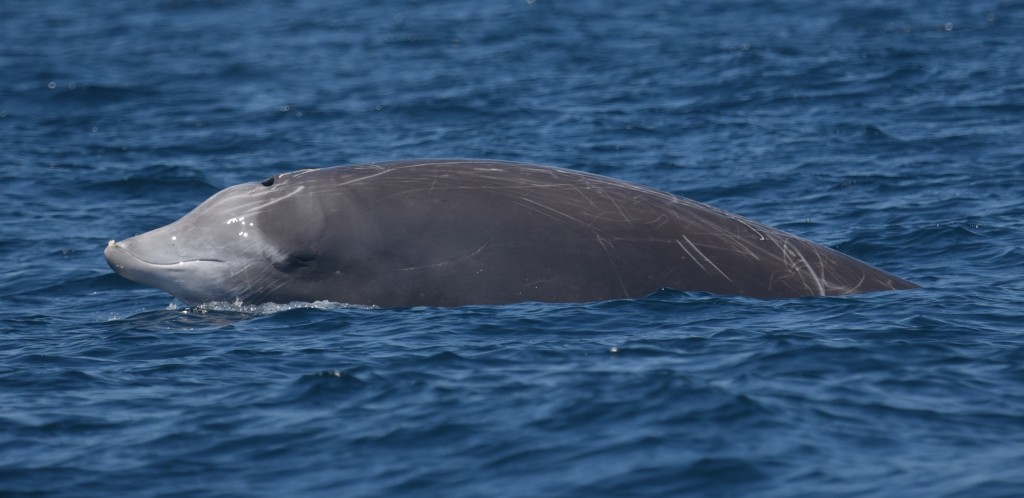The Marine Science & Conservation Lecture Series, which has been in existence for the past two years, gives graduate students, post-docs, and junior faculty from the Duke Marine Lab the opportunity to share their research with other nearby universities with programs in marine science. This year, two Read Lab students, Dani Crain and Kristina Cammen, participated in the lecture series and presented their research at Elizabeth City State University (NC) and Hampton University (VA).
Dani describes her experience: “I began my talks by introducing the foraging ecology of whales, dolphins, and porpoises (cetaceans), and work that into how the Duke University Marine Lab has been researching these animals in the recent years: using tags. The tags we use in our most current research are called digital acoustic recording tags, or DTags. These tags record the time, depth, body orientation, and any sounds that the tagged whale makes, as well as any other sounds within the recording range of the tag. Then I happily tell the students about my own research: this includes my own masters project on the quantitative analysis of pilot whales’ reactions to tissue sampling, as well as a separate project focusing on the foraging behavior of pilot whales as they attempt to capture a prey item using body orientation as a measurement. For a glimpse at what I’m trying to get across to these students when discussing my own research, you can check out my Master’s project here: http://dukespace.lib.duke.edu/dspace/handle/10161/5288. My favorite part about talking to the students in these classes is that I have provided them with insight into cetaceans they have not had much exposure to before. When I gleefully tell them about the versatile killer whale species that specialize on their preferred prey in amazing and spectacular ways, I can see their eyes light up and their interest piqued. After the talk, these students, that knew nearly nothing about this very specific study area before, come up with some amazing questions. This tells me they have absorbed the talk and have already begun to synthesize this information with what they have learned before in their undergraduate careers.”
Kristina describes her experience: “I approached this lecture series as an opportunity to both present my own research and to interest new undergraduates in pursuing a graduate career in marine science. With these goals in mind, during my lecture I described my research as a process (discovering a research question, developing hypotheses and methods, and interpreting results), which hopefully helped the undergraduates better understand what it’s like to conduct graduate dissertation research. I began by introducing my study system: bottlenose dolphin populations in the Gulf of Mexico that appear to differ in resistance to harmful algal blooms, or red tides. Then, as a class, we discussed the various hypotheses that could explain this difference in susceptibility, and I shared my results from tests of a genetic basis for resistance. I really enjoyed interacting with the students at both Hampton and Elizabeth City State University. The students were engaged and interested in participating in the scientific process of developing hypotheses to answer a question of conservation concern, and during this exercise they came up with many of the same hypotheses that other researchers in the field are currently investigating.”
For more information about the lectureship series, check out the website:
http://www.nicholas.duke.edu/marinelab/about/marine-science-and-conservation-lectureship-series




